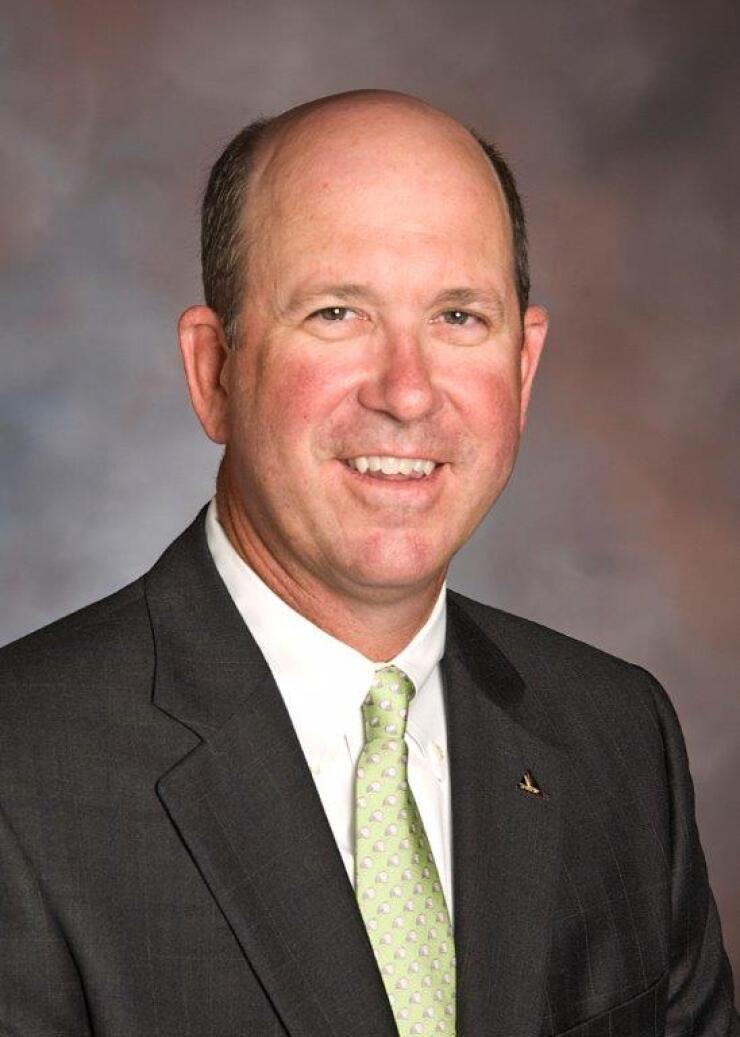
CORRECTION, JAN. 4, 2024 AT 9:26 P.M.: An earlier version of this story erroneously connected the surge in check fraud losses at Regions last year to a September 2022 change in the bank's funds availability policy. That policy change, which was made in connection with the rollout of the bank's Early Pay service, related to when funds paid to customers by electronic direct deposit would be made available. Regions says that the spike in check fraud losses was unrelated and grew out of a counterfeit check scheme and a separate stolen check scheme. Mentions of Early Pay and an outside expert's comment about Early Pay have been removed from the story.
In response to an analyst's question late last year about the spike in check fraud,
"We opened the door too wide, bad people came rushing in, and we didn't close the door timely enough," Turner added in his comments at the BancAnalysts Association of Boston Conference in November. "That's on us."
Jennifer Elmore, a
"Out of respect for proprietary information and our work with law enforcement supporting their investigation into the check fraud schemes, we will decline to provide further information," Elmore said.
Outside experts said that when banks expedite the release of customer funds, they may be assuming some risk.
Banks are having to balance internal controls to prevent fraud with customer satisfaction, said Brian Cairl, senior managing director at K2 Integrity, a consulting firm that works with financial institutions on compliance risks and financial crimes.
"Anything that the bank can do to delay a disbursement of the funds that they receive — in order to make sure that when they disburse the funds, they're doing so to legitimate individuals, people for whom those funds were intended — is in my opinion a step forward," Cairl said.

During the second quarter of 2023,
Since identifying the schemes,
In September, Anna Brackin was appointed as the bank's new chief compliance officer, replacing Doug Jackson, who retired after 34 years at
The $154 billion-asset bank has said that it expects to report roughly $25 million in fraud losses during the fourth quarter, and that quarterly fraud losses are expected to remain around the same level in 2024.
"Setting aside funding for mitigating possible fraud losses is a normal course of business in the banking industry," the bank said in emailed comments. "This is not specific to just one institution."
Check fraud is a term that covers a variety of financial crimes involving the use of stolen or counterfeit checks at financial institutions. It's the most common type of financial fraud reported at U.S. depository institutions, according to data from the U.S. Treasury Department's Financial Crimes Enforcement Network.
In suspicious activity reports filed by depository institutions in 2022, check fraud incidents totaled more than 501,000, an increase of 120% from 2019, according to Fincen data.
Check fraud incidents across the industry were
Fraudsters have become emboldened by their success in stealing government funds from pandemic-era stimulus programs and have "rediscovered" check fraud as a low-tech entry point to steal money from banks, said Trace Fooshée, a strategic advisor and fraud expert at the research firm Datos Insights.
Anonymity and the ease of committing fraud in the digital age, alongside social media channels where mail thieves and cybercriminals exchange tips and share information, make check fraudsters similar to slot machine players "pulling the lever over and over again," Fooshée said.
Banks with loose funds availability policies are "very popular" among fraudsters today, he added. "They have found a slot machine that pays," Fooshée said.
David Maimon, who leads a team of cybersecurity fraud researchers at Georgia State University, said that mail theft and the online sale of personal account information are fueling an "online fraud ecosystem." That ecosystem is costing the U.S. banking industry an average of $100 million per month, he estimated.
"Checks are simply being stolen by criminals and used for all kinds of purposes," Maimon said. "Once you have a check, you have someone's identity, you can engage in many other types of fraud."
Rob Nichols, president and CEO of the American Bankers Association, said in a November speech that ABA member banks are creating an
"We believe this effort can make a real difference in fighting financial crime," Nichols said at the ABA's financial crimes enforcement conference.
"Over the past few years, we have seen what can only be characterized as an explosion of fraud activity — particularly check fraud," he said.
Following the surge in check fraud losses at
The bank also stated that it continues to work with law enforcement on ongoing check fraud investigations, and that some suspects have been apprehended.






